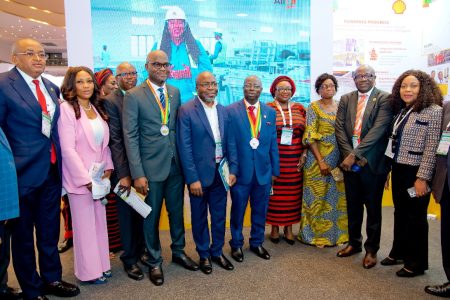
Oscarline Onwuemenyi
08 April 2017, Sweetcrude, Abuja – The Senate Joint Committees on Petroleum Upstream, Petroleum Downstream and Gas yesterday laid its report for the Petroleum Industry Governance Bill (PIGB) before the Senate ahead of its consideration.
The PIGB seeks to establish a framework for the creation of commercially-oriented and profit-driven petroleum entities that ensure value addition and internationalisation of the petroleum industry, promote transparency in the administration of the petroleum resources of Nigeria; and create a conducive business environment for petroleum industry operations.
The report was laid by the Chairman of the Joint Committee, Senator Tayo Alasoadura (Ondo Central) and would be considered by the lawmakers on April 25, 2017, after resumption from Easter recess.
Senate President, Dr. Bukola Saraki, yesterday lauded the joint committees for their work describing the day as a ‘historic day’.
Efforts to pass the Petroleum Industry Bill (PIB) by previous assemblies have suffered setbacks for several reasons.
It is however considered to be one of the most critical economic bills, particularly in the period where the country pursues sustainable economic development.
Saraki, at various times, had promised that the PIB would be passed before the end of the eighth assembly.
At a three-day public hearing organised by the joint committees in December 2016, the Senate President had lamented that such an important sector of the economy has for too long performed below efficiency indexes, with government and investors alike losing a significant edge in the oil and gas investment trends.
“This situation has undermined our citizens’ standard of living, life expectancy, our national energy security and has resulted to other unforeseen fall-outs like labour unrest, fuel queues, high cost of delivery of products, high cost of delivery of overall services in the overall economy, and unquantifiable wastage of national productivity as a result.
“The state of the industry globally today has heightened and made it imperative that either we comprehensively reform our local industry to have a chance to keep it alive or become extinct. The oil and gas industry is yearning for good governance, competitiveness, transparency, indigenous participation, and accountability,” he said.



